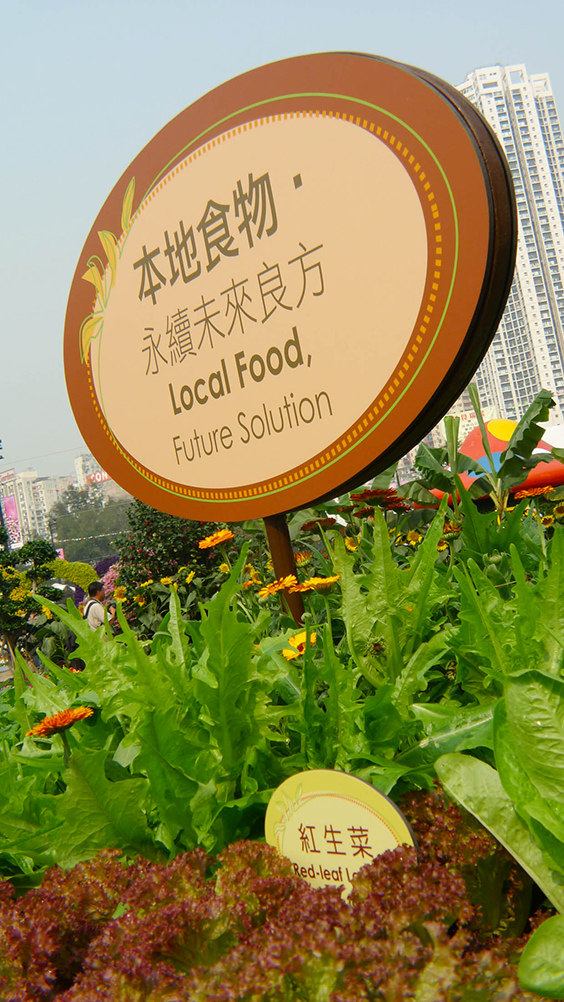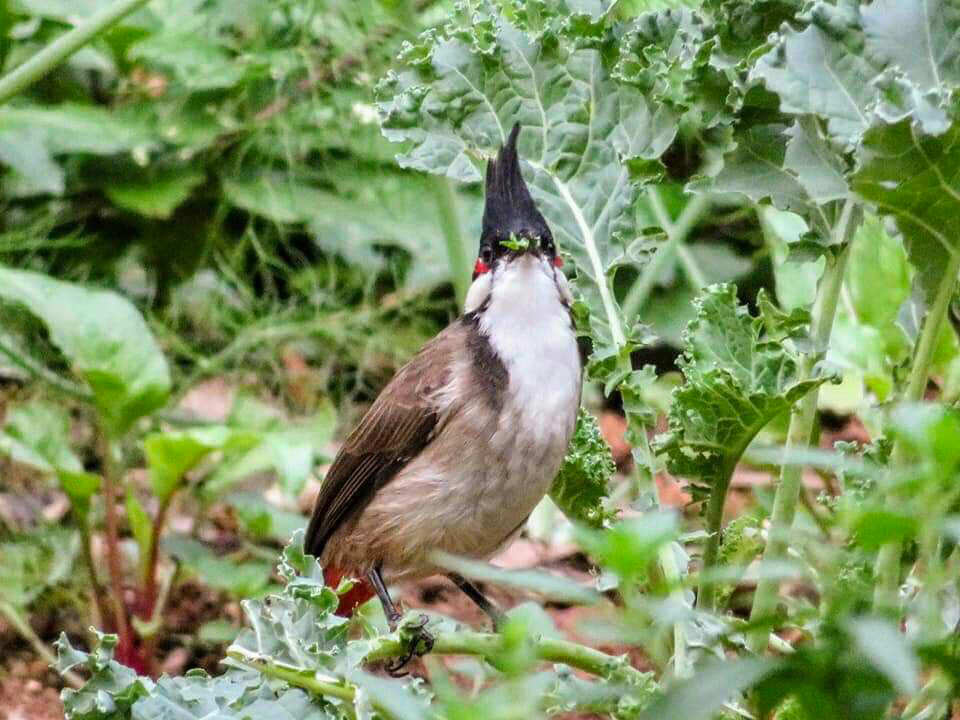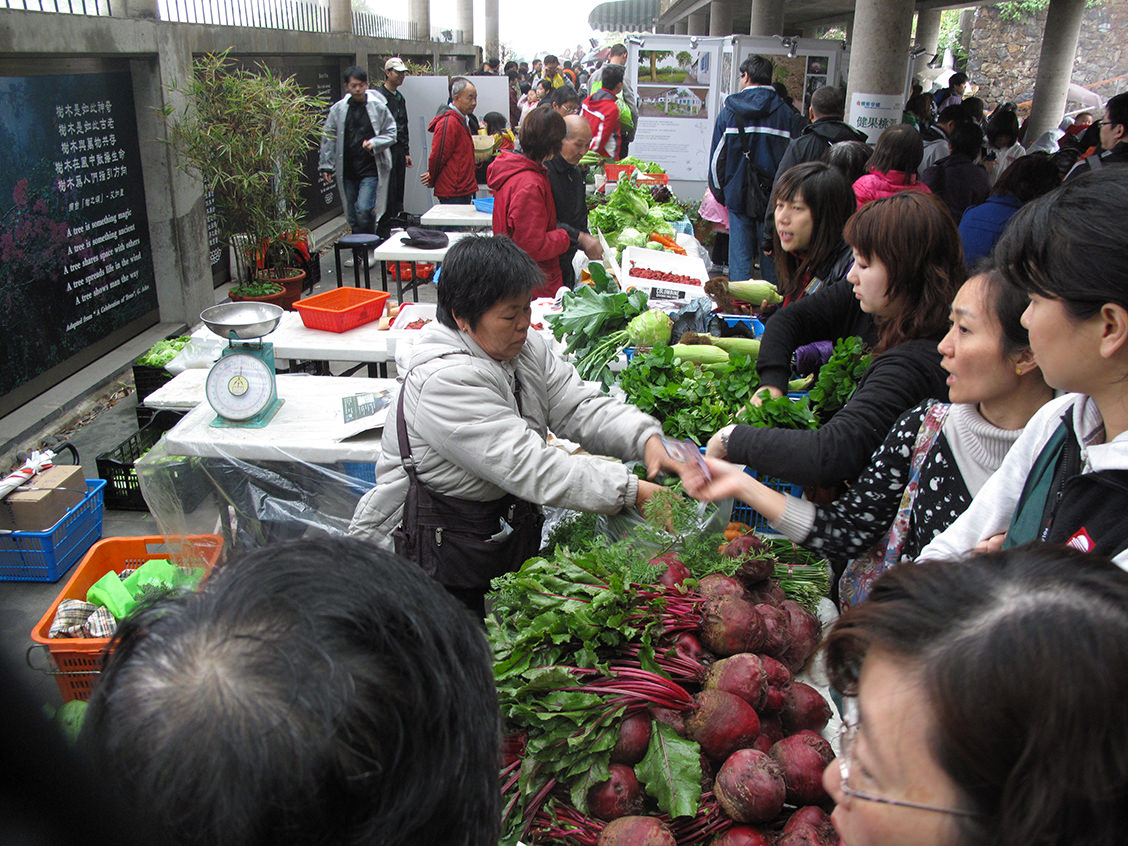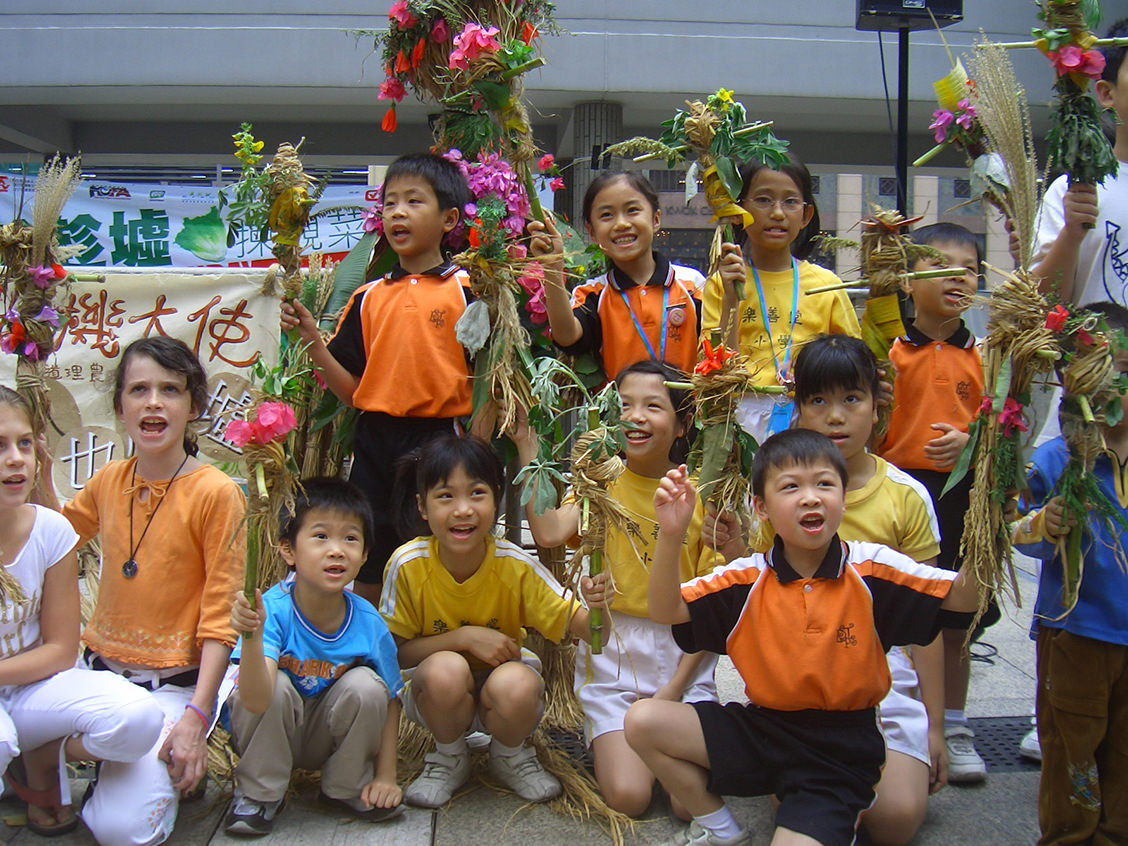
Food Security for the population

Hong Kong is currently unprepared for the effects from Climate Change, which will intensify in the future. Imported foods, excluding live food animals, accounted for 99% of total food supply in Hong Kong in 2017. Conventional agriculture relies on putting large amounts of oil-based and gas-based fertilisers and pesticides into the soil to keep the, essentially dead, soil productive. All imported food relies on stability of food supply from other country and the cheap oil for processing as well as transportation. The price of food is closely linked to the price of fuel, abundance of food supply and ease of transportation.
In terms of fresh food, local vegetables accounted for only 1.8% of local consumption; freshwater fish, 4%; seafood, 18%, in 2018. It is therefore important to realise that 'food security' for the population of over seven million is a very serious issue and will be more challenging under the escalating effects of Climate Change. There is an urgent need for us to take all possible steps to progressively increase Hong Kong’s level of food self-sufficiency.
In order to safeguard and increase public interest in this important issue, it is vital that we prevent further loss of our existing farmland and greatly expand urban agriculture in an urgent and creative manner. By taking sensible, positive action now to put food security before ‘development’, we can do much to reduce the risks in the coming decades.
Ecological Sustainability

The Convention on Biological Diversity (CBD) came out of the 1992 Rio De Janeiro summit meeting and was extended to Hong Kong in May 2011. That so many ecological hotspots in the territory fall within agricultural land is not a coincidence, as traditional agriculture methods have, for hundreds of years, been maintaining ecosystem resilience. Sustainable agriculture has also been widely practiced locally and worldwide as a strategy to engage community participation in nature conservation. Sustainable agriculture has a key role to play in meeting the multiple goals of the CBD’s Aichi Biodiversity Targets concerning the raising of awareness of biodiversity values, the integration of these values, incentives, the use of natural resources, preventing loss of habitats, avoiding pollution, ensuring buffer zones for protected areas and maintaining ecological resilience in Hong Kong. Systematically integrating sustainable urban agriculture with our Biodiversity Strategy and Action Plan under the CBD will bring about broad environmental, economic and social benefits to the people and the environment.
Responding to Food Safety Concerns
Unsafe food has remained the top environmental concern of Hong Kong citizens for years. A local survey conducted in 2008 revealed that 77% of Hong Kong residents surveyed believe unsafe food is the most important environmental issue and 90% of people surveyed want the government to take action on this front The increasing number of organic farmers’ markets, organic farms and community farms, as well as the growing public protests at proposals to re-zone farmland for development in recent years, reflect an escalating demand and support for urban agriculture in Hong Kong.
Create Sink of Organic Resources in Abundance

As in many other cities, the disposal of waste has become a serious problem in Hong Kong. Urban agriculture can serve as the sink for abundant organic resources and can ameliorate waste disposal problems by turning much urban waste into a productive resource. By adopting organic practices, farmland and landscaped parks in Hong Kong can digest all the compost from our food waste. Together with efficient waste reduction programmes and the expansion of urban agriculture and organic landscaping, Hong Kong can showcase the pleasure and beauty of sustainable living as well as being a model for a 21st century city.
Cutting Carbon Footprint
With regard to food mileage, urban agriculture produces food of substantially lower carbon footprint than imported food. Given that urban agriculture can serve as a sink for organic waste, extensive urban farms of different scales spread over Hong Kong help to reduce the carbon footprint related to the transportation and landfilling of such waste. Many more private food gardens, market gardens and farms are needed.
Holistic Sustenance for City Dwellers
Urban agriculture can enhance the quality of life in Hong Kong by focusing on our universal need for sustenance: fresh air, healthy food, recreation, relaxation, education, a sense of community and a shared responsibility for our environment. These are the roots of security, of empowerment and the community.
The merits of community farming in improving intergenerational cooperation and communication, as well as subjective well-being, have been confirmed by local research. Through food scrap collection, composting and organic produce growing, urban agriculture allows one to see, taste, smell and feel how nature can be transformative in an urban setting.
Sustainable urban agriculture is widely employed worldwide in life education, education for sustainability and rehabilitation programmes in harmonising different groups within a community.

References:
- Centre for Food Safety: Management of Food Safety, by Food and Environmental Hygiene Department
- Hong Kong Year Book 2018
- Resources Centre on Urban Agriculture and Food Security
- Agriculture, Fisheries and Conservation Department
- DeGolyer, M.E. 2008. Hong Kong’s Silent Epidemic. Civic Exchange
- Cheung, M., Chan, A., Meng, S., Fong, F. and Wong, H.Y.E. 2005. Happy farming programme: an exploratory study from an intergenerational perspective. Lingnan University (Hong Hong, China).

